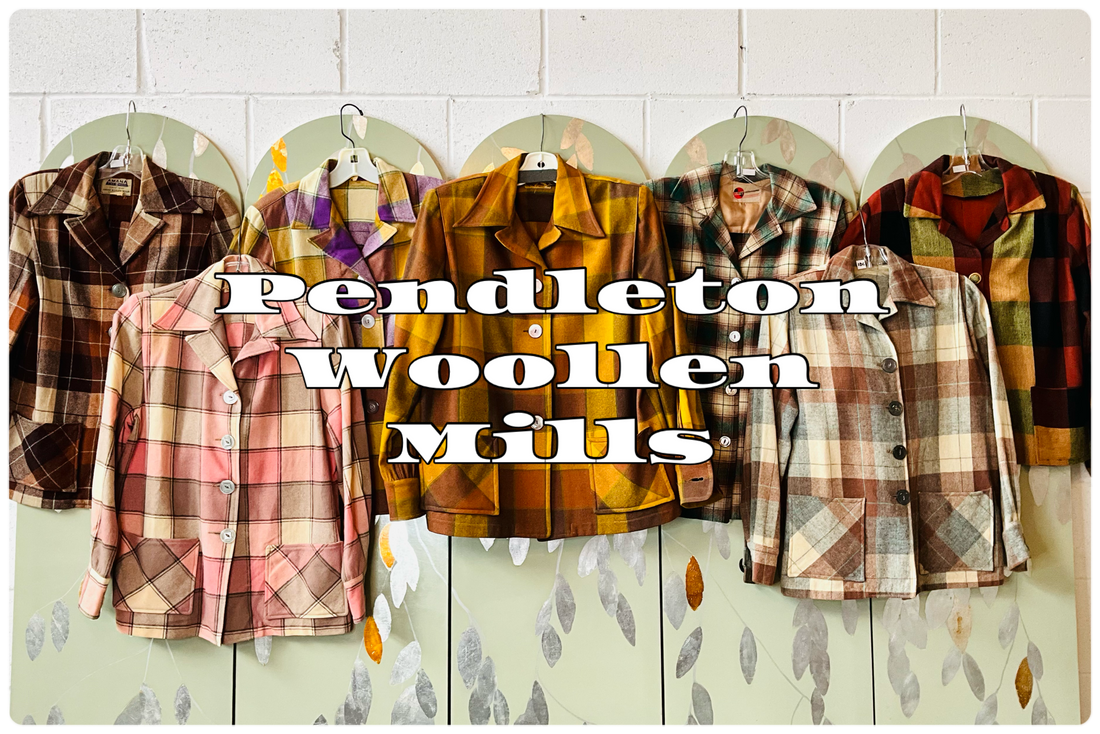A little history on the Pendleton Woollen Mills, who made the blanket robes worn by the Osage Nation in Killers of the Flower Moon. Both vintage and reproduction blankets were used based on historical images and Pendleton archives.

Thomas Lister Kay, a weaver from England, began working in Oregon’s woollen mills in 1863. He eventually opened his own mill, the Thomas Kay Woollen Milll, in 1889. His daughter joined the business and married retailer C.P. Bishop, who also joined the company. Thomas died in 1900 and the mill was operated by four generations of the Kay family until it closed in 1962. That mill is now a museum.

In the meantime, the Kay’s and Bishops opened a defunct woollen mill in the town of Pendleton in 1909. The mill had previously manufactured Native American trade blankets beginning in 1896. They made unfringed blankets for the men and fringed blankets for the women of the Umatilla, Cayuse, Nez Perce and Walla Walla nations. The Kay-Bishop family resumed production of these blankets and introduced new designs to their line and changed the corners from round to square. They extended their trade to the Navajo, Hopi and Zuni nations. British designer Joe Rawnsley lived with these nations for six months and learned what their colour preferences were and what elements they favoured. The Pendleton blankets became apparel and were standards of trading and ceremonial use, as well being status symbols.


The company expanded in 1912, opening another mill in Washougal, Washington, for the production of woollen fabrics for suits. One of the Bishop sons introduced woollen sports shirts in bright colours. Woollen shirts would have previously been considered work shirts and came in dull colours. By the late 1920s, they were producing a full line of sportswear.

During WWII, they devoted most of their production to blankets and fabrics for uniforms.

They introduced a line of clothing for women after the war and the ‘49er jacket proved very popular. Original ‘49ers are especially coveted by vintage enthusiasts today.

The reversible pleated “Turnabout skirt” (2 skirts in 1) was also very popular.

In 1960, a group called the Pendletones were formed, taking their name from the classic wool shirt. They later changed their name to The Beach Boys!

In the 1970s, the company expanded into non-wool garments for Spring and Summer.
In the 1980s, Pendleton opened a chain of retail stores before starting a catalogue business and an e-commerce platform in the 90s. They began hiring Native American artists in the 90s. In recent years, they have responded to criticism that the company had been profiting off of Indigenous design motifs. They raised more than $1 million for the American Indian College Fund, partnered with 6 other native organizations and committed to providing yearly grants to two nonprofits.

Today, the company is still owned by the Kay-Bishop family and sell all over the world. The original mills in Pendleton and Washougal are among the few woollen mills still in operation in the United States.
Below, we have a selection of 1940s/50s plaid shirt jackets that are new to our rentals collection. The mustard and brown colourway (dressed on the mannequin) is an authentic Pendleton ‘49er while all the others are lookalikes or imitations.
Pendleton started making these jackets in 1949 when they saw that women were wearing their husband’s wool shirts. A woman named Berté Weichmann (who had worked for Jantzen) designed the jackets, adapting the men’s shirts by using large shell buttons and patch pockets to soften the look. The popularity of this design meant that companies all over America began knocking it off. Pendleton eventually sought legal protection and patented the design.
Some of the labels on the other jackets pictured here include Graff Californiawear, Amana Fine Woolens and Jac-Koat from Rite Coat Co.



